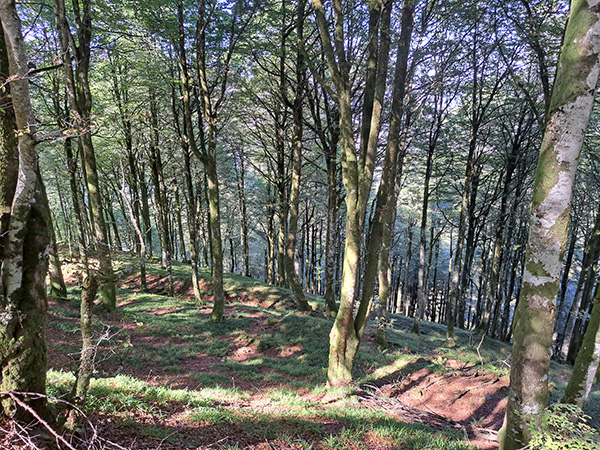The Battle of Roncevals Pass is depicted in literary tradition as an ambush at the narrow Zize Pass. This portrayal dramatically enhances the narrative by vividly describing the daunting challenges the Frankish heroes endure as they navigate through the dark ravines and ominous gorges of the Zize Pass, which marks the high points of the Pyrenees. This detailed depiction fills the scene with tension and drama, highlighting the arduous journey faced by the characters in this epic confrontation:
|
High are the peaks, the valleys shadowful, Swarthy the rocks, the narrows wonderful. Franks passed that day all very sorrowful, Fifteen leagues round the rumour of them grew. When they were come, and Terra Major knew, Saw Gascony their land and their seigneur's, Remembering their fiefs and their honours, Their little maids, their gentle wives and true; There was not one that shed not tears for rue. Beyond the rest Charles was of anguish full, In Spanish Pass he'd left his dear nephew; Pity him seized; he could but weep for rue. |
The peaks are high, the valleys full of shadows, The rocks are dark, the narrow paths are marvelous. The Franks passed that day in deep sorrow, The rumor of their presence spread fifteen leagues around. When they arrived and recognized Terra Major, Seeing Gascony, their land and lord’s domain, They remembered their fiefs and honors, Their young maidens, their gentle and faithful wives; There was not one among them who did not weep with sadness. Charles felt the deepest anguish of all, Having left his beloved nephew behind in the Spanish Pass; He was overcome with pity and could only weep with sorrow. |

However, the depiction of the landscape in the Chanson does not align with that found in contemporary historical chronicles. The chronicles do not mention deep gorges or ravines; instead, they describe winding mountain roads and dense forests. The narrative necessity of the epic, however, demands a more dramatic explanation for the defeat than a mere oversight, thus it introduces two critical factors: the strategic advantage afforded by the terrain at the Zize Pass and the overwhelming numerical superiority of the enemy, whose forces are said to number 400,000 warriors—twenty times the size of the Carolingian rearguard.
The epic heavily emphasizes Roland's refusal to sound the oliphant to call for reinforcements from the main army. The poet highlights that Roland declines to do so three times, even under the persistent urging of his close companion and second-in-command, Oliver. This refusal is portrayed not just as an act of bravery but perhaps also as a tactical imprudence.
Moreover, Roland’s refusal serves a crucial narrative purpose: it justifies Charlemagne's absence from the field of battle. By placing the emperor away from the immediate action and focusing the attack on a distant rearguard guarded by 20,000 valiant warriors, the poem limits the scale of the defeat to a significant but small part of the Carolingian army. This strategic narrative choice not only highlights the heroism of Roland and his men but also sidesteps the potentially problematic presence of the emperor at the site of the ambush, thereby preserving his esteemed leadership image while explaining the tragic loss through betrayal driven by personal vengeance and greed.